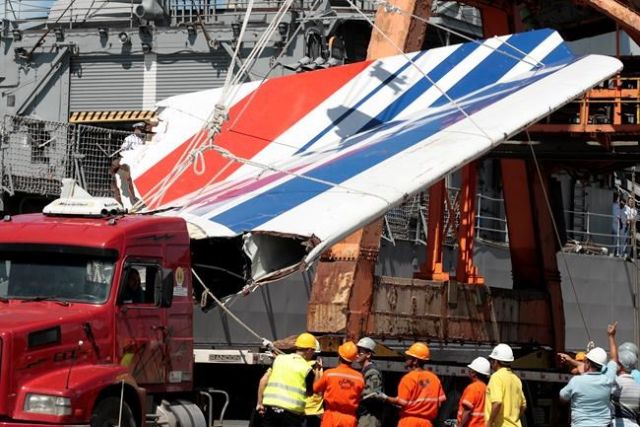
A French court has acquitted Airbus and Air France of manslaughter charges in the case of the 2009 crash of Flight 447 from Rio to Paris, which resulted in the death of 228 people and prompted significant changes in aircraft safety measures.
The decision was met with sobs from the families of the victims in the courtroom as the judges announced the verdict. This comes after a two-month trial that left the families devastated and disappointed. Even state prosecutors argued for acquittal, stating that there was not enough proof of criminal wrongdoing by the companies.
The responsibility for the crash was primarily attributed to the pilots, who died in the incident, according to prosecutors. Airbus lawyers also blamed pilot error, while Air France stated that the full reasons for the crash may never be known.
Airbus and Air France were facing potential fines of up to 225,000 euros ($219,000) each if convicted. Although this is a small fraction of their annual revenues, a conviction could have had reverberating effects on the aviation industry.
It’s worth noting that no one faced the risk of imprisonment in this case, as only the companies were on trial. Air France had already compensated the families of those killed, who hailed from 33 different countries, including Brazil.
The A330-200 plane disappeared from radar during a storm over the Atlantic Ocean on June 1, 2009, with 216 passengers and 12 crew members on board. It took two years to locate the plane and its black box recorders on the ocean floor at depths of over 13,000 feet (around 4,000 meters).
The official investigation into the crash determined that multiple factors contributed to the accident, including pilot error and the icing over of external sensors known as pitot tubes.
An Associated Press investigation at the time revealed that Airbus had been aware of issues with the type of pitot tubes used on the crashed jet since at least 2002, but failed to replace them until after the crash.
Air France was accused of not implementing training for the event of pitot probes icing despite the risks, while Airbus was accused of not adequately informing airlines and their crews about the faults with the pitot tubes or ensuring sufficient training to mitigate the risk.
The crash had long-lasting impacts on the aviation industry, leading to changes in regulations for airspeed sensors and pilot training.
The trial was emotionally charged, with distraught families shouting down the CEOs of Airbus and Air France during the proceedings when they took the stand in October. As the trial concluded with the surprising call for acquittal by prosecutors, dozens of people who had lost loved ones stormed out of the court.